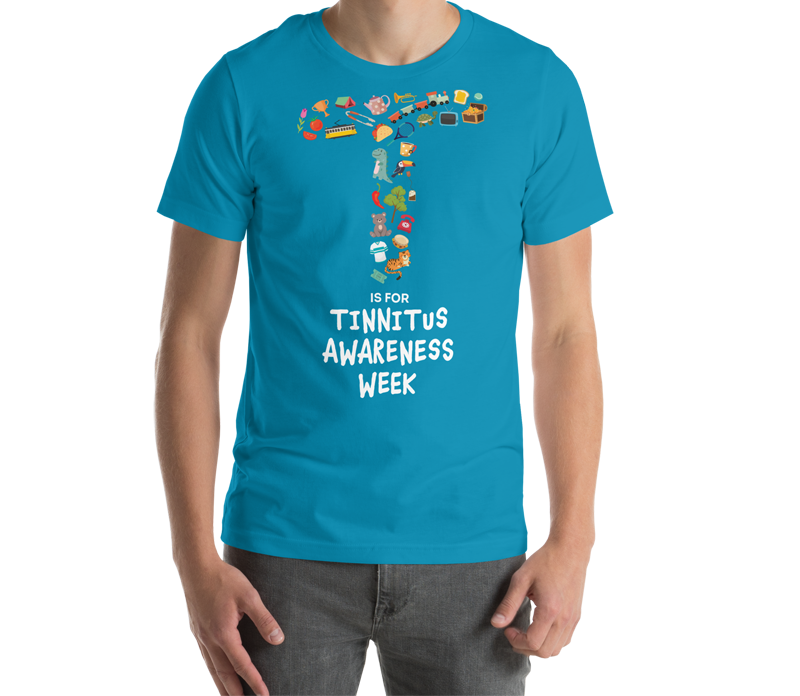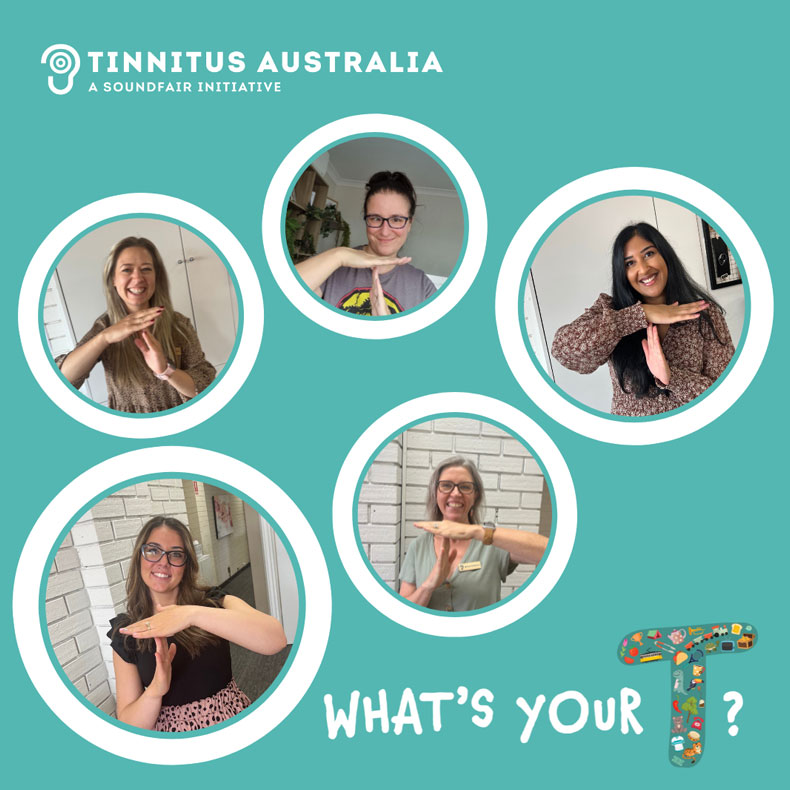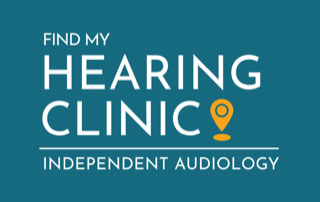T is for Tinnitus Awareness!
Living with tinnitus can be an isolating and distressing experience. With one in three Australians living with some degree of tinnitus, it can affect many areas of day to day living and can have an impact on mental health and wellbeing. We believe that no one should suffer the loss of silence, in silence. That’s why we’re committed to providing quality information and support to those living with tinnitus. Do you know someone with Tinnitus?

T is for Tinnitus Awareness!
Living with tinnitus can be an isolating and distressing experience. With one in three Australians living with some degree of tinnitus, it can affect many areas of day to day living and can have an impact on mental health and wellbeing. We believe that no one should suffer the loss of silence, in silence. That’s why we’re committed to providing quality information and support to those living with tinnitus. Do you know someone with Tinnitus?

Tinnitus Awareness Week
The theme this year is: ‘T is for Tinnitus Awareness’. A national campaign for all Australians.
Our aim is to bring people, communities, and organisations together to raise awareness and much needed funding to continue provide professional education, helpful resources and support to thousands of people.
What is tinnitus?
T is for Tinnitus.
Tinnitus, often called ringing in the ears, is a hearing condition where people hear noises, hisses or hums that are not present in the real world. Tinnitus can be constant or occasional, loud or soft, mild or severe, and can be heard in one or both ears or in the head. Tinnitus can happen to people of any age or background. Approx. one in three people in Australia have experienced tinnitus at some point in their life and about one in six live with constant tinnitus. About 2% of Australians (or 500,000 people) find their tinnitus very distressing.
How is tinnitus managed?
T is for Treatment.
The more we understand our tinnitus, the more we can regain control and actively work towards reducing its impact on our life. The first step is to get in touch with your GP and audiologist who can check your hearing, help you understand your tinnitus and discuss a management plan. You may also be referred to an Ear Nose and Throat (ENT) doctor to check if there are any medical causes for the tinnitus.
Your own experience of tinnitus will help your healthcare provider direct you to the best management options. If your tinnitus changes with neck movements, you might see a physiotherapist. If you have jaw pain or clicking, you might see a dentist. If you have hearing loss, you may see an audiologist to trial hearing aids. For many people, seeing a psychologist or audiologist who specialises in Cognitive Behaviour Therapy (CBT) could be the best option.
What causes tinnitus?
T is for Trigger.
Tinnitus is a symptom of other underlying conditions, such as hearing loss, ear injury, neck or jaw issues, or circulatory system disorders. Most commonly it starts because of a change in the ear, but it is actually generated by the brain. For some people, the impact of tinnitus can be greater than the impact of the underlying condition that causes it.
What are the impacts of tinnitus?
T is for Troublesome.
Sometimes our brain decides that these tinnitus sounds are a threat, so it saves and highlights these messages in the brain’s emotional control centre. For some people, the impact of tinnitus on a person’s life can be devastating, increasing risk of depression, anxiety, and even suicidal thoughts. Some people fear that their tinnitus will get worse forever, but that isn’t true. There is help.
Who can I speak to?
T is for Talking.
If you are experiencing tinnitus for the first time, it may be helpful to know that you are not alone. Connect with others in peer support groups, such as the Aussies with Tinnitus Facebook group. Reach out to your GP or audiologist to start a plan of action or contact us and we can help point you in the right direction.
How You Can Get Involved
Whether you’re a business or an individual wanting to get on board and help make a difference, why not consider some of the below ideas, or be creative and come up with something of your own:
![]()
Hosting a “T” event: a Tea party, Taco Tuesday office lunch or family dinner or a Tapas and Tango party, a game of Tennis, or a Table Tennis tournament, Tap dancing, Train or Tram ride.
![]()
Wear your “T”: a T-Rex onesie, Taco costume, or a T-shirt with something starting with T – perhaps a turtle, telephone, tambourine, or a telescope. The list is endless!
![]()
Be social and spread the word: Take a photo of yourself and/or your friends, family or colleagues making a T symbol with your hands and post it to your social media with the hashtag #MyT4Tinnitus.
![]()
Share your story: Your story is like treasure, giving hope to others. Email us your story and your experience along with a photo or two: info@soundfair.org.au

Buy your “T”-Shirt: We have T is for Tinnitus t-shirts available on our online store.
Make a donation to help support people with tinnitus

FUNDRAISING
Money raised provides support through our free TINNITUS HELPLINE which is staffed by trained tinnitus counsellors and accessed by hundreds of people in crisis every year. We also provide professional education and develop helpful and practical resources supporting thousands of people every year.
Free Tinnitus Awareness Digital Support Kit
To help raise Tinnitus Awareness, take advantage of our FREE digital support kit. It features a number of resources such a social media posts, both content and graphics are ready to go; a poster to print and display; an informative and helpful brochure all about Tinnitus; a website banner; LinkedIn and Facebook Banner. Register your interest today and receive your FREE Tinnitus Awareness digital Support Kit via email.
Register now to get your FREE digital toolkit.



